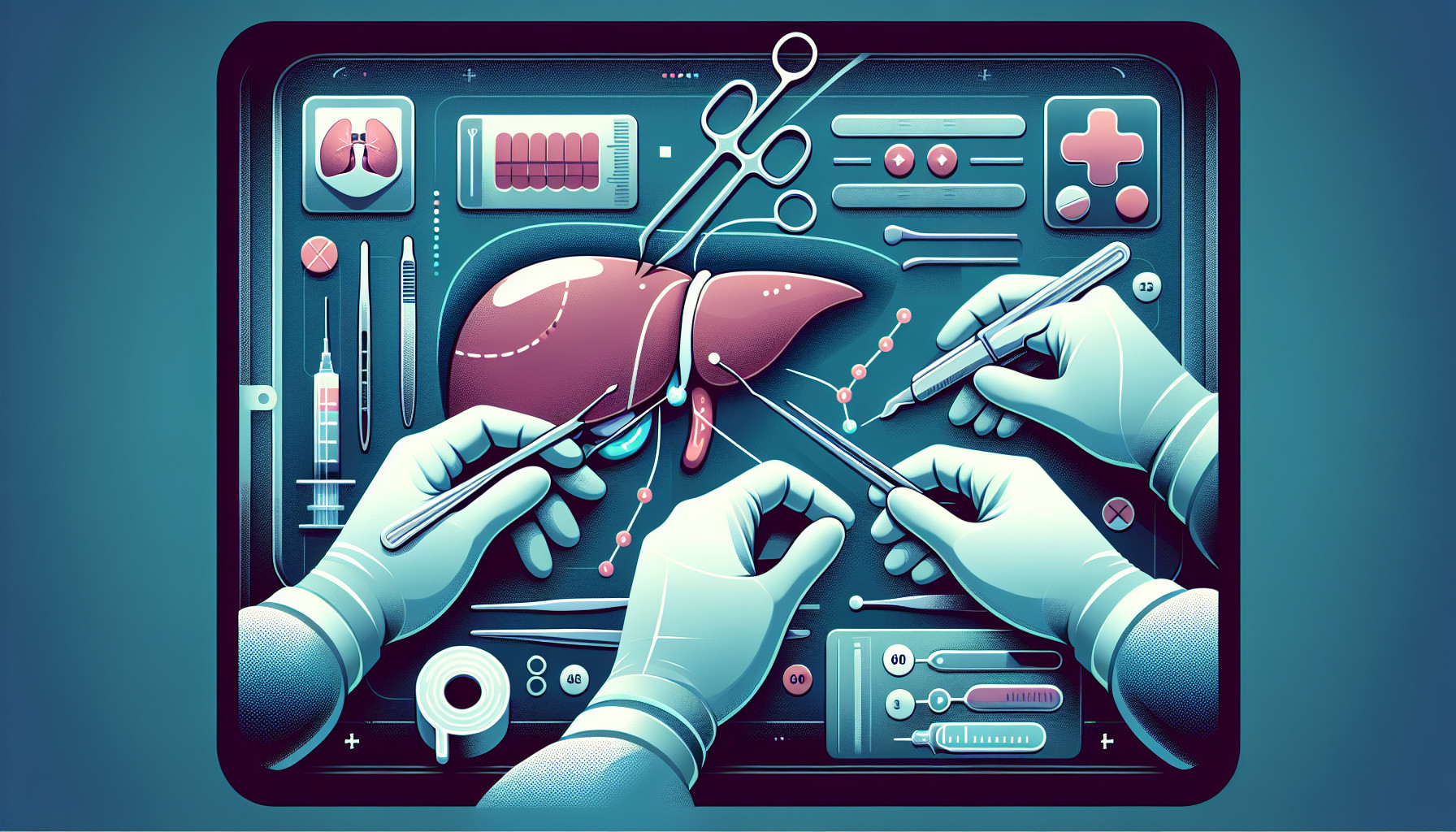Our Summary
This research paper is a comprehensive review of a common medical procedure known as Ultrasound-guided percutaneous liver biopsy (UG-PLB). This involves using ultrasound imaging to guide a needle into the liver to obtain a small tissue sample. It is often done to diagnose or monitor various liver diseases.
The authors aim to provide the most important information about this procedure from the perspective of interventional radiologists, who are the specialists that usually carry out this type of procedure. The paper includes a brief history of how the procedure was developed and its common uses. It also outlines when it should not be performed (contraindications), possible complications, and offers a technical review of the common techniques and equipment used during the procedure. The authors base their discussion and findings on the most influential papers in current medical literature.
FAQs
- What is an ultrasound-guided percutaneous liver biopsy?
- What are the most common indications and contraindications for an UG-PLB procedure?
- What are the potential complications of a UG-PLB procedure?
Doctor’s Tip
One helpful tip a doctor might tell a patient about liver biopsy is to avoid taking any blood thinning medications, such as aspirin or ibuprofen, for a certain period of time before the procedure. This is important to reduce the risk of excessive bleeding during and after the biopsy. It is also important for the patient to inform the doctor about any allergies they may have, as well as any current medications they are taking, to ensure a safe and successful procedure. Additionally, the doctor may advise the patient to fast for a certain period of time before the biopsy to ensure accurate results.
Suitable For
Patients who are typically recommended for liver biopsy include those with:
- Suspected liver disease, such as hepatitis, cirrhosis, fatty liver disease, or autoimmune liver disease
- Abnormal liver function tests or elevated liver enzymes
- Monitoring of known liver diseases for progression or treatment response
- Evaluation of liver masses or lesions for diagnosis or staging
- Evaluation of abnormal liver imaging findings that are inconclusive
- Evaluation of unexplained ascites or jaundice
- Transplant recipients for monitoring of graft function or rejection
It is important for patients to undergo a thorough evaluation by their healthcare provider to determine if a liver biopsy is necessary and appropriate for their individual case.
Timeline
Before liver biopsy:
- Patient will undergo a consultation with their healthcare provider to discuss the need for the procedure and potential risks and benefits
- Patient may need to undergo blood tests and imaging studies to assess liver function and identify any potential complications
- Patient will be instructed to fast for a certain period of time before the procedure
- Patient may be prescribed medications to help relax or prevent pain during the procedure
After liver biopsy:
- Patient will be monitored for a few hours post-procedure to ensure there are no immediate complications such as bleeding or infection
- Patient may experience some pain or discomfort at the biopsy site, which can be managed with over-the-counter pain medications
- Patient will be advised to avoid strenuous activity for a few days following the procedure to allow the liver to heal
- Patient will follow up with their healthcare provider to discuss the results of the biopsy and any further treatment or monitoring that may be needed.
What to Ask Your Doctor
Some questions a patient should ask their doctor about liver biopsy may include:
- Why is a liver biopsy being recommended for me?
- What information will the biopsy provide about my liver condition?
- What are the potential risks and complications associated with the procedure?
- How will the biopsy be performed and what can I expect during and after the procedure?
- Will I need to make any special preparations before the biopsy?
- How long will it take to get the results of the biopsy?
- What follow-up care or monitoring may be necessary after the biopsy?
- Are there any alternative tests or procedures that could provide similar information?
- What experience does the healthcare provider have with performing liver biopsies?
- Are there any specific instructions or restrictions I should follow after the biopsy?
Reference
Authors: Alturkistani H, Alsergani AH, Alzeer M, Alturkistani A, Zaini R, Bauones S. Journal: Medicine (Baltimore). 2024 Jul 26;103(30):e38673. doi: 10.1097/MD.0000000000038673. PMID: 39058859
